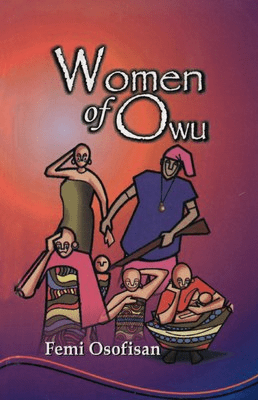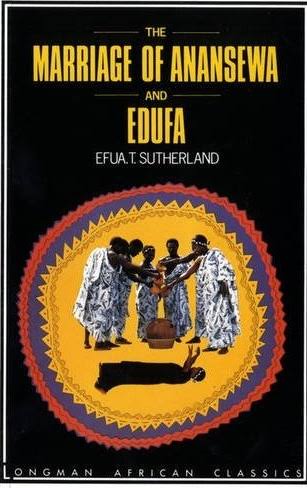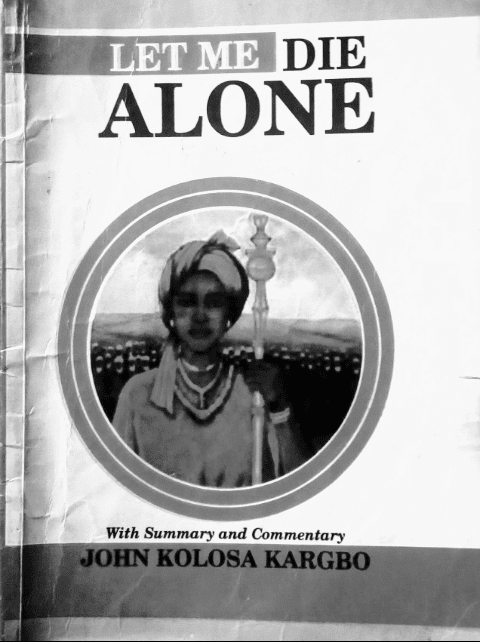Some of the themes in Femi Osofisan’s Women of Owu include war and destruction, puppetry of humans by the gods, vengeance, fate, slavery, distortion of history, deceit, and symbiotic relationship between gods and human beings.
Now, let’s examine these themes as portrayed in Femi Osofisan’s tragic play.
War and Destruction
In the play, war and destruction go hand in hand. With war comes destruction. The people of Owu for instance have to stay holed behind the walls of their city for seven years before the Allied Forces are able to push them out of the impregnable fortress of their city. During this period, there is hunger and famine in Owu. In other words, the siege brings inconvenience to the inhabitants of Owu.
With the victory of the Allied Forces comes full scale destruction of the lives and properties of the Owu people. These and the enslavement of the surviving women of Owu is a glaring case of war and its aftereffects.
In every war, there is always the victor and the vanquished. In the context of the recent war upon which the events in the play are built around, the Allied Forces are the victors while the people of Owu are the vanquished. This is not always the case as Owu used to be on the side of victory. Their war history has it that they ransack the Apomu market where they attack the Ifes and the Ijebus. The play is a clear example of the destructiveness and the meaninglessness of the whole affair of war.
The war also shows how low human beings can go. We see human beings reduced to mindless animals. Take for example the kind of horrible death Prince Aderogun, the son of Adumaadan and the grandson of Erelu, is condemned to. The poor child’s head is bashed against a tree and his skull crushed.
Puppetry of Humans by the Gods
The play shows in clear terms the role of gods in the affairs of the living. Human beings are portrayed as puppets in the hands of the gods.
After the attack on the Ife people by the Owu warriors, Lawumi, the ancestral mother of the Owus, is angered by the audacity of the Owu people to attack what is considered the source of all the Yoruba people. She is equally crossed with the Owu people for selling their fellow Yoruba people into slavery.
Lawumi decides to punish the Owu people. She makes them extend their handshake beyond the wrist by attacking the Ijebus too. With a common enemy, the Ifes and the Ijebus rally together into a formidable force against the Owus.
So, she prods on the Allied Forces of Ife, Ijebu and the Oyo mercenaries to wage war against the Owu – what would last for seven years and bring Owu to her kneel.
But then, the Allied Forces overdo things. They destroy shrines, particularly that of Lawumi, and also kill inordinately those who seek refuge in the shrines.
Lawumi becomes angry again, directing her anger towards the Allied Forces. She rallies the gods against them and serves the verdict that a lot of the warriors will not reach their homes while those who do after years of wandering will find their positions taken by others or find wars waiting for them.
Lawumi’s idea of justice justifies the notion that humans are helpless puppets in the hands of the gods. She uses the Allied Forces to punish the Owu people for attacking the Ifes and for breaking the existing tradition that no Yoruba should sell the other into slavery. Then, she punishes the Allied Forces for desecrating the sanctity of the shrines. She is like the proverbial babalawo that did the invisibility charm for the cockroach and also did the meet-your-target-on-the-road charm for the hen.
It is worthy of note that humans, if given the chance, would have pitted the gods against each other. For example, the Allied Forces justify their destruction of shrines with the excuse that they are protected by Ogun, the god of metallic ore.
Theme of Vengeance
The theme of vengeance is well pronounced in Women of Owu. Iyunloye’s first husband, Okunade, a sculptor, feels wronged when Iyunloye is taken captive by Owu warriors and married off to an Owu prince, Dejumo.
Okunade leaves his sculpture profession for a career in the military where he rises to the position of the Maye. It is then he is able to exact his vengeance on the Owu people through the channel of the feud Owu has with her Yoruba neighbours.
Maye Okunade’s vengeance is confirmed in the following excerpt:
Okunade became bitter and swore to get her (Iyunloye) back. Shamed and disgraced, he abandoned his tools and took to arms. And so fierce was his passion for killing that he rose rapidly through the ranks, and soon became the Maye!
Page 6, Women of Owu
Theme of Fate
Fate also plays a prominent role in the unveiling of events in Femi Osofisan’s Women of Owu. Ifa divination reveals at birth that Prince Dejumo, Erelu’s son, is an evil child who is destined to bring deaths and calamities to the people of Owu. He would seduce the wife of a man who would retaliate.
After the revelation of his destiny, Dejumo is not meant to live judging by his ominous destiny but Erelu keeps him all the same.
Thus, he fulfils his birth prophecy with his seduction of Iyunloye and the aftermath is the ruination of Owu Kingdom.
Theme of Slavery
Slavery is an underlying message in the play. War captives are sold into the slave trade dominated by Arabs and Europeans. It is easily discerned that there is slavery among the Yoruba people in the play.
The Owu warriors breach the agreement that no Yoruba should sell another Yoruba into slavery to either the Arabian slavers or the European slavers.
When the Allied Forces descend on the Owu city, they too replicate the same enslavement of the Owu people who are their Yoruba sisters. That they did not think twice before selling the Owu people into slavery shows that they are actively involved in the slave trade too. In other words, Africans are complicit in both trans-atlantic and trans-saharan slave trades.
Distortion of History
In page 66 of the play text, Erelu, when possessed by the spirit of Anlugbua, raises a question on the validity of history as it is told. Her claim beggars the question: is history what we think it is or just a doctored version of true events?
We find Anlugbua saying the recorded version of history about the gods is not exactly true; that the gods too ended their lives on earth in ruins of war. In his words:
Each of us, how else did we go except by the wrath of war? Each of us, demolished through violence and contention! Not so? But you choose to glorify the story with lies! Lies! Our apotheosis as you sing it is a fraud!
Page 66, Women of Owu
When the women excuse their ignorance of the true history on the basis that history itself is written by the people high up, Anlugbua dismisses their excuse and charges them to write their own history as it is and not allow someone else do that for them.
Besides, the excerpt also demonstrates the meaninglessness of wars.
Theme of Deceit
Deceit comes into play when Iyunloye through the wiles of her looks and lies deceives Maye. She projects herself as the victim of a wicked fate and will eventually win Maye over.
She waxes lyrical about how she loves and has always loved Maye Okunade. This, she claims, is shown in how she promotes his art, conveniently ignoring the fact that the art fetches her lots of money.
She ensnares Maye Okunade with tales of how she tried to escape from Owu only to be caught by the guards whom she had to bribe each time she was caught not to tell anyone. Erelu counters Iyunloye’s escape claims, saying they are blatant lies. Erelu then relates how she has always wanted to help Iyunloye escape but the latter was always reluctant.
Iyunloye is portrayed in every way as a chronic liar and human manipulator. Despite Erelu’s warning to Maye about Iyunloye, Maye is eventually swept off his feet by Iyunloye’s sweet looks and lies.
By the end of the play, there is the general feeling that Iyunloye will go unpunished for her role in the war.
The Symbiotic Relationship Between the Gods and the Humans
Like the rich and the poor, the strong and the weak, the victor and the vanquished exist as binary opposites, so do the gods and the humans. The meaning of one is derived from the existence of the other.
The humans and the gods exist in a symbiotic social construct. Humans worship the gods while the gods in turn provide humans with protection and sustenance. But the moment Owu is destroyed, in the remnants of Owu people, the gods lose their human worshippers. As Anlugbua asks in page 9, “without a shrine, without worshippers, what is a god?” In other words, gods and humans complement each other.
Not wanting to be taken as playthings, the gods turn humans into their play toys. Humans, in this case the surviving women of Owu, will also forsake the gods for failing them.
In other words, neither exists in isolation. Each exists to complement the other.
Read Also:
- Memorable Quotes from Femi Osofisan’s “Women of Owu”
- Characterisation in Femi Osofisan’s “Women of Owu”
- Plot Summary of Femi Osofisan’s “Women of Owu”
 WHATSAPP: Click HERE to join the new Literature PADI WhatsApp group to receive latest updates on your phone and for further literary discussions!
WHATSAPP: Click HERE to join the new Literature PADI WhatsApp group to receive latest updates on your phone and for further literary discussions!











This is very helpful
Comments are closed.